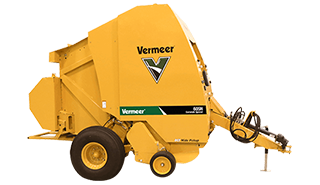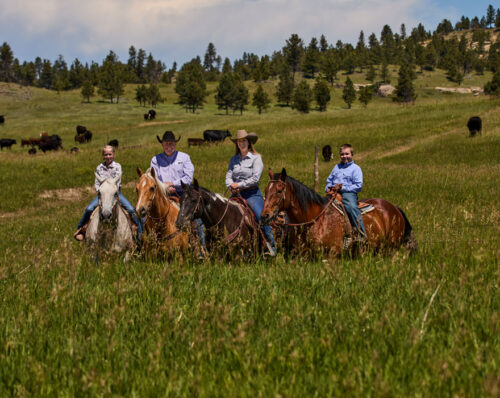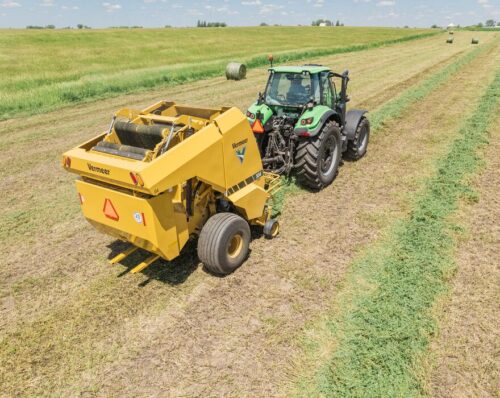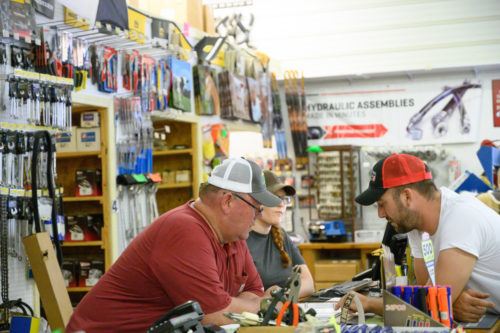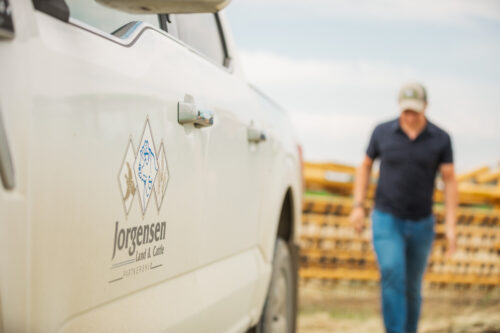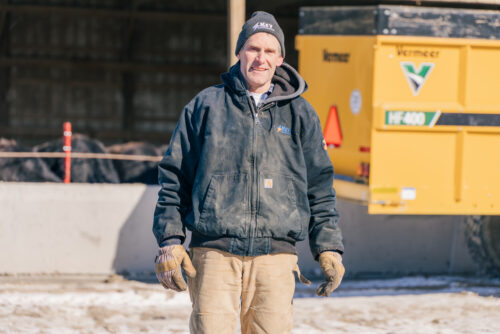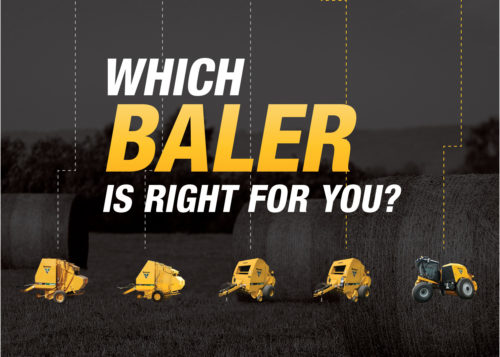
Real farms, real stories: What makes an Iowa beef producer choose Vermeer ag equipment? Meet the Johnson family
May 2025
For National Beef Month this May, Vermeer Forage is highlighting producers who use Vermeer agriculture equipment and raise beef cattle.
Johnson Family Farms is in rural Jackson County, Iowa. The family, led by Larry and Mary Lou, along with their children Joe, James and Janell, has built an enterprise focusing on cow-calf pairs, feedlot cattle, hay and row crops.
They face challenges such as labor shortages and high input costs but find immense reward in working together and instilling strong values in the next generation of Johnsons. The family utilizes advanced technology and practices to maximize yields and improve cattle fertility and health. They take pride in their quality livestock and crops, and their commitment to farming is evident in their dedication and resilience.
Let’s meet the Johnson family.
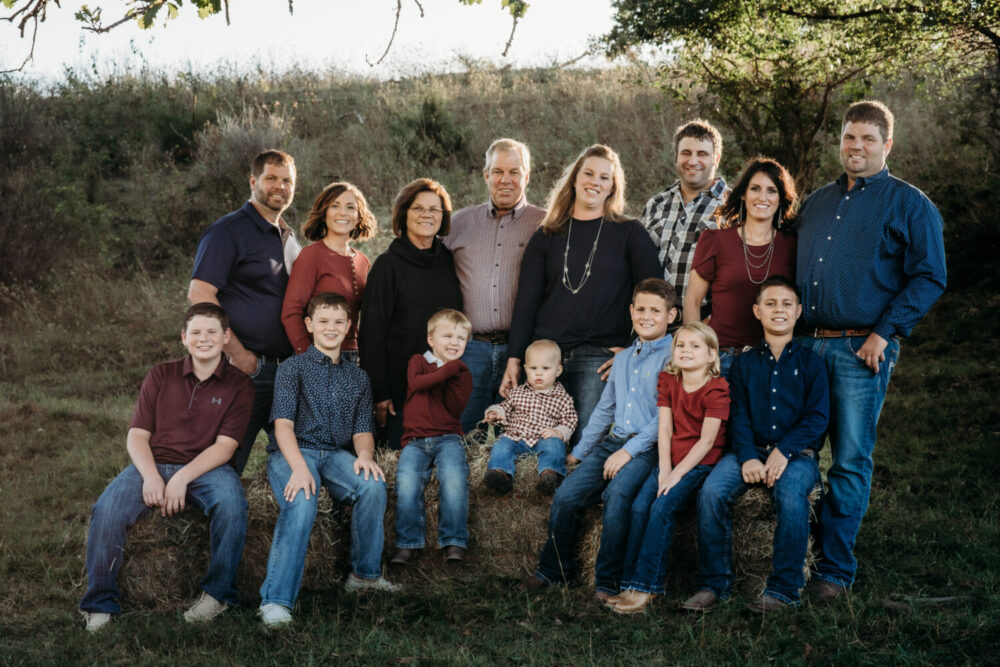
Tell us about your beef operation?
Johnson Family Farms is a multigenerational, diversified operation located east of Maquoketa, Iowa. Over the years, the family has built the operation from scratch, with an emphasis on cow-calf pairs, feedlot cattle, hay and row crops. Currently, we run 450 pairs, feed out close to 10,000 head a year and grow corn, soybeans and hay on 3,000 acres. Much of our success comes from being able to grow most of our own feedstuffs, which keeps our feed input costs significantly lower and helps the bottom line.
What’s the history of your farm?
Larry fell in love with farming at a young age as he farmed next to his dad, Leroy.
And, as they say, the rest is history.
He and his wife, Mary Lou, have always lived on a farm and have known nothing but farming. They purchased what is now known as the home farm in the 1980s, and from there the operation has only grown. Together, with the farm, they raised three children: Joe, James and Janell.
The love of farm life runs strong as they have all returned home and farm alongside their parents. Joe has taken the lead on the crop side and has expanded the technology necessary to make the most of every potential growing day, which has helped to maximize yields. James, along with his wife, Ashley, has spent countless hours with the cow-calf operation implementing artificial insemination, embryo transfer, using bulls with both phenotypical and genotypical advantages and, most recently, using CowManager® tags to improve and maximize the cow herd’s fertility and pregnancy success rates.
They have generated success in the show ring, pasture and on the rail and take pride in raising quality purebred and commercial cows that meet the demands of our current economy. Janell has taken up the bookkeeping aspect of the operation, manages the Performance Livestock Analytics program and operates a division of Channel® Seed, County Line Ag.
What are the biggest challenges and rewards in the beef industry?
There are quite a few challenges facing the beef industry currently, but for us personally, we find there are two major areas of concern: Labor and sourcing cattle at a reasonable input cost.
First and foremost, labor is hard to come by, especially those who have experience, common sense and the drive to want to work. We currently employ one full-time hired hand, but with the scope of our operation, we could easily use one or two more full-time employees. Our other concern is breaking even with such high input costs. For the past few years, cattle prices have been continuing to trend higher, putting more pressure on monitoring for sickness in new cattle and death loss rates. Thankfully, we are able to source most of our own feed, which helps cut down on feed costs. The volatility of our current economic status has us a little concerned with feed cattle prices and breaking even. But like everything, ebbs and flows make things work out in time.
We find our biggest reward to be working alongside our children, instilling values, a work ethic and the love of farming, whether it is cattle or crops or somewhere in between. It is also humbling and heartwarming to be working three generations deep and to watch our kids work with our parents side by side.
Even if our kiddos decide farm life isn’t for them when they get older, they will have the foundational skills necessary to work anywhere, in any field, and be successful because the farm background has proven to be so beneficial over the years. James and Ashley have allowed their children to show cattle, and the personal growth, responsibility, respect, trust and leadership their show heifers have helped to teach them is second to none.
As parents, there is nothing greater than to see your children build trust and relationships with animals to become a team and then have success in the show ring. The future of Johnson Family Farms looks bright as the next generation, seven strong, follow in Grandpa’s footsteps.
What are your future goals for your operation?
While we aren’t completely sure what the future holds, we do know farming and feeding cattle is in our blood, and one thing is for sure: we won’t be giving it up anytime soon. With our country’s current cow numbers, we will continue to grow our cow herd and diversify the cows as we put emphasis on carcass quality, striving for higher-yielding and higher-grading cattle to get more bang for our buck.
We will also focus on raising quality show stock that can not only perform in the show ring but, most importantly, can go out and make a great addition to the cow herd, maintaining structure, quality, and longevity, and passing highly sought-after genetics on year after year.
What does being a beef producer mean to you?
We pour a lot of blood, sweat and tears into our work, knowing we have to do it all over again tomorrow.
It means being farm strong and proud, but it also means long days, short nights — especially during calving season — and heartbreak when the calf we worked so hard to save just couldn’t fight anymore. It means delight when the cow you thought would never get up finally does three weeks later.
It means hope and faith: That it will rain, prices will work to your advantage, science and technology will work like they should, medicine will cure, fences will withstand the reaching cow and over-aggressive bulls — especially when they know you have special events to attend —consumers will trust and purchase, and most importantly, that tomorrow will come.
We’ve come to realize being beef producers isn’t for the faint of heart, and perhaps we are our own breed: ones who give it our all knowing it still won’t be enough, ones who just can’t walk away because there is that 2% chance it just might work, ones who just have it in their DNA to keep trudging along, even when the mud is knee-deep.
Day in and day out, the to-do list is never-ending, but somehow, we always manage to chip away at it, knowing we get to do it all over again tomorrow, because “God made a Farmer.”
What’s one thing you want consumers to know?
We absolutely love what we do day in and day out, and regardless of what the media portrays, we only do what is in the best interest of our livestock and strive to produce the most wholesome and healthy product we possibly can. We truly love our cattle and would never put them in jeopardy, nor the consumer.
What Vermeer equipment do you use?
Johnson Family Farms operates two 605N Cornstalk Special balers purchased from Breeden Sales in rural Maquoketa. Our first Cornstalk Special baler was purchased in 2010, and we have never looked back.
Since then, we have purchased 14 balers to bale 5,000 bales of hay and 5,000 bales of cornstalks every year.
How has Vermeer equipment helped your operation?
The Vermeer 605N Cornstalk Special baler has helped our operation immensely, allowing us to make the most of our time during crunch time. We are always facing timelines during hay and cornstalk bale season, whether we are beating the rain or snow, needing to get the bales off to haul manure or allow for regrowth or simply wanting to move on to the next task.
We know the goldyellow baler will help us meet deadlines and move on to the next job awaiting. The baler also helps to make bales consistent in size, shape, and weight. When you have farm kids, you quickly learn how important consistency and good bales are — bale jumping isn’t for the faint of heart and will forever be one of their favorite sports!
What’s one specific example of the impact of Vermeer equipment?
From a wife’s perspective: Since switching to a Vermeer Cornstalk Special 15 years ago, my husband no longer comes home mad and grumpy.
The balers hardly ever break down or have problems, and if they do, we have the best customer service from our dealers — the Breedens. A happy husband who can keep baling and get bales made when the hay and stalks are dry and fit makes for a happy wife and home!
— Answers provided by Ashley Johnson of Johnson Family Farms
Vermeer Corporation reserves the right to make changes in engineering, design and specifications; add improvements; or discontinue manufacturing at any time without notice or obligation. Equipment shown is for illustrative purposes only and may display optional accessories or components specific to their global region. Please contact your local Vermeer dealer for more information on machine specifications.
Vermeer, the Vermeer logo and Equipped to Do More are trademarks of Vermeer Manufacturing Company in the U.S. and/or other countries. All other trademarks, registered trademarks and service marks are the property of their respective owners
© 2025 Vermeer Corporation. All Rights Reserved.

